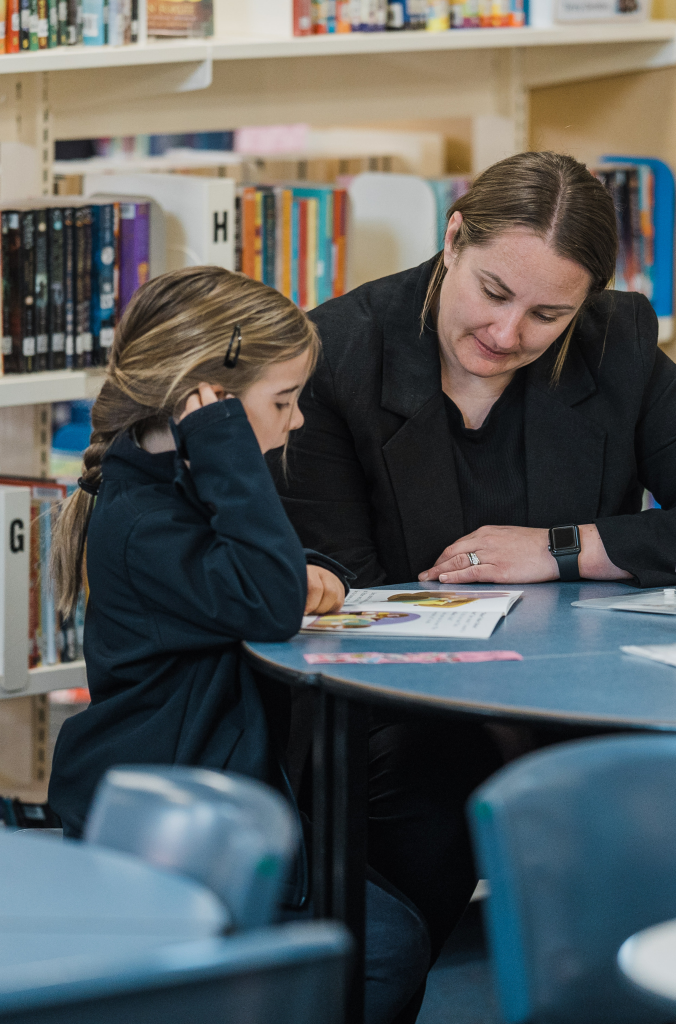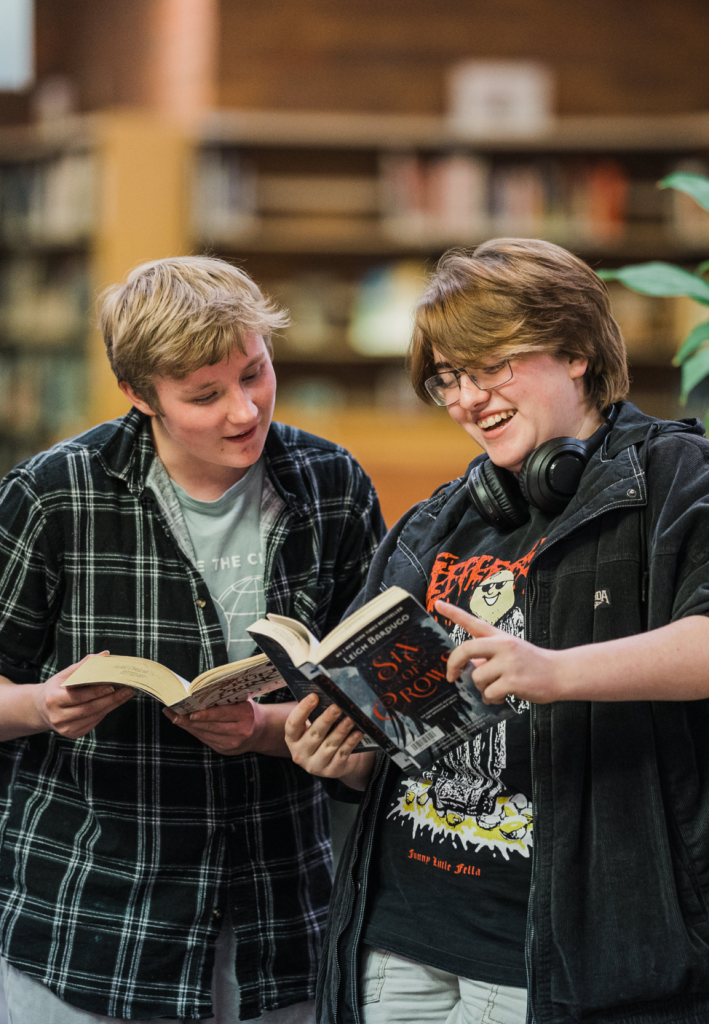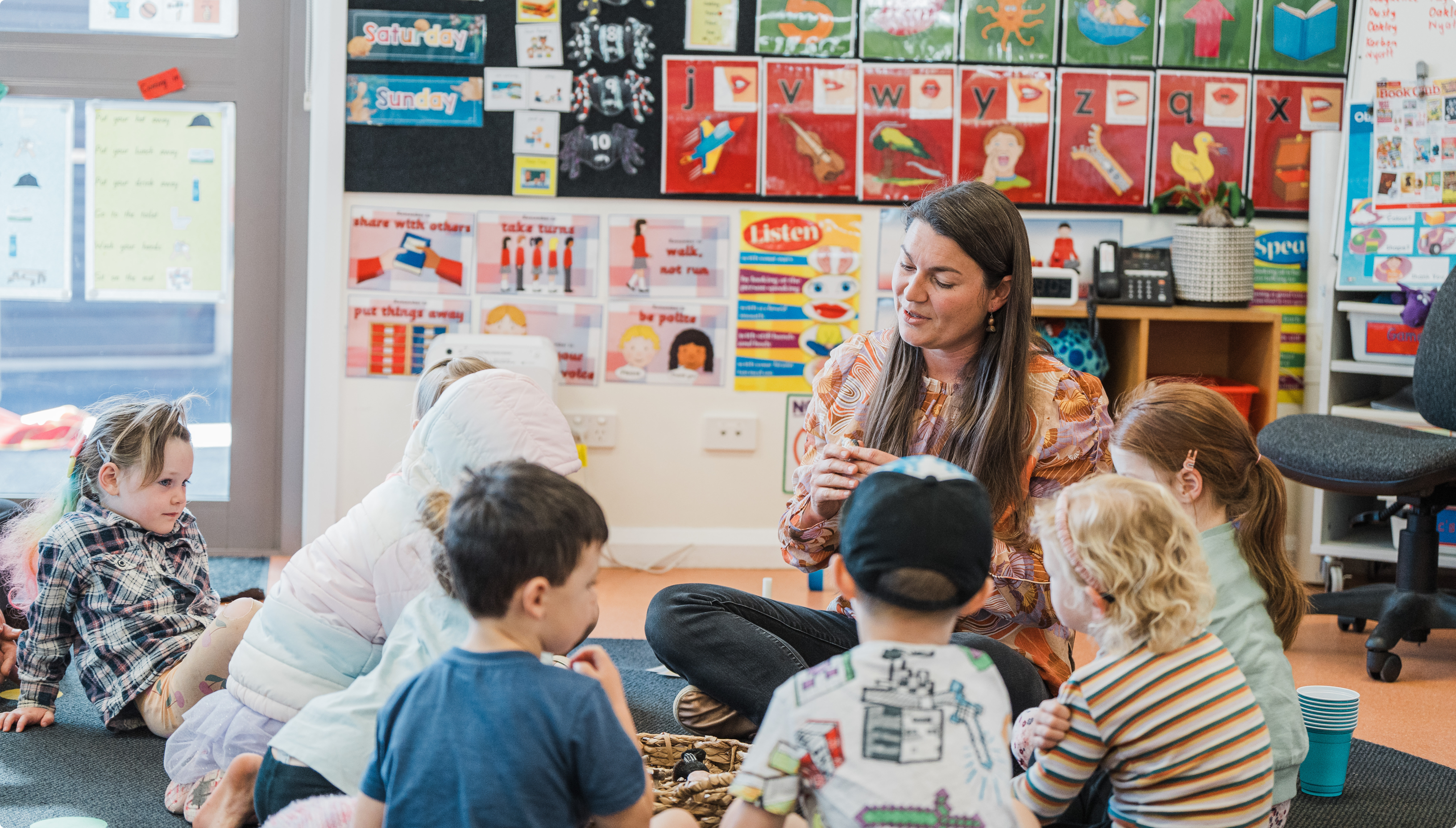Overview
In the first year of our Lifting Literacy Implementation Plan, we made strong progress across early years, school years, adults and community literacy. We focused on establishing a strong foundation of skills, knowledge and capability across our workforce to set everyone up for success.
Our approach to this first year of implementation has been deliberate, considered and rolled out in stages so that changes to the way we teach literacy are woven into DECYP policies and classroom practice.
In 2024, our priority was to build a shared understanding of what success looks like across schools, communities, families and individuals. We provided clear information to all DECYP staff about system-wide changes, how we are measuring success and the role of each person in the Lifting Literacy Implementation Plan.

“We are committed to the Tasmanian Government’s whole-of-community approach to Lifting Literacy, and we are making changes to the ways we teach literacy across early years, school and adult settings.”
Ginna Webster – Secretary, Department for Education, Children and Young People
School Years

- DECYP worked closely with experts such as Emina McLean, Mandy Nayton, Holly Lane and research teams from Monash University and Melbourne University and Deakin University to inform our decisions and approach.
- All DECYP schools received clear guidance about how to implement structured literacy in a multi-tiered system of supports framework. Expectations were clearly communicated to School Leaders, so system-led changes were consistently adopted across different schools.
- Principals received ongoing support and guidance about literacy implementation and intervention. We centrally responded to over 80 school enquiries each month and gave tailored advice to school leaders.
Tasmania is the first Australian state to mandate a structured approach to literacy instruction across a school-system.
All DECYP schools received information, resources and support needed to begin implementing the Minimum Schooling Guarantee requirements.
- 100% of government schools with Prep-Year 2 Students have been using a structured phonics program since the start of 2024.
- After extensive investigation, UFLI Foundations and Word Origins were identified as the preferred literacy programs for DECYP primary schools. Ongoing training and teaching resources are centrally provided to make sure phonics, spelling and word study is taught consistently across all classrooms.
- 88% of schools committed to implementing the UFLI Foundations Phonics program in Prep-Year 2 classes in 2025.
- 90% of schools committed to implementing the Word Origins spelling and morphology program in their year 3-6 classes in 2025.

“Improvement at a large scale requires a laser like focus on what matters and takes time to become evident.”
Vicki Baylis – Independent Review of Education

- Over 8200 staff have completed the four core modules of our Qualiteach training. This online training course builds knowledge of what a structured approach to literacy includes and how to deliver this approach in the classroom.
- Over 420 school leaders and teaching staff from 166 schools attended training sessions with literacy expert Emina McLean in 2024. The focus of these sessions was on structured literacy, fluency and word recognition.
- 120 schools trialled the Dynamic Indicator of Basic Early Literacy Skills (DIBELS) screening tool in 2024, and it has already been used to successfully screen more that 40% of DECYP students between Prep and Year 8.
- 55% of our students who completed the Year 1 phonics check in 2024 either met or exceeded the expected phonics achievement. This is a 5 percentage point increase from 2023.
We are changing the way we teach reading in our schools. Students are learning to read in structured, systematic and explicit ways.

- A new School Library Improvement team began working with school libraries to create spaces and collections that encourage children and young people to practice what they are learning in their literacy lessons. 33 staff attended a training session on school library collections and another 65 watched the recording.
- The department has centrally provided training and resources to support schools in the delivery of foundational literacy programs. This includes over 790 decodable readers distributed to all Prep classes at the start of Term 1, 2025.
- We worked closely with Catholic and Independent school sectors, to establish a consistent approach to teaching literacy across the state. We are able to share resources, research and ideas and work together to embed these changes across all schools.
Early Years
- We tested 35 different screening tools for early literacy and found the Grammar and Phonology Screen (GAPS) is the most appropriate early language screening tool.
- 30 Schools trialed GAPS in 2024. After this successful trial, GAPS was chosen as the early literacy screening tool for all DECYP Kindergarten classes.
- Five Early Childhood Education and Care (ECEC) sites trialled Qualiteach ECEC modules and provided feedback.
- We developed online training to support staff working with children 0-5 years old. This training is available for staff working in schools, CFLCs, libraries and the broader ECEC sector to give all young children opportunities to develop the early literacy skills they need to succeed.

“We are supercharging the Lifting Literacy effort, to make sure all Tasmanians have the resources, information and support they need to succeed.”
Jo Palmer – Minister for Education
Adults
- We continued to support adult literacy through the 26Ten strategy and Libraries Tasmania’s Adult Literacy Service.
- In the 2023 – 2024 financial year, ten workplace projects were funded by 26Ten grants. The 26Ten Communities Program supported 597 Tasmanian learners with 1149 hours of tutoring and supported 12 students to complete their Certificate II in Community Services.
- Libraries Tasmania continued to deliver literacy tutoring through their Adult Literacy Services with 404 of adult literacy clients.
- An option for online adult literacy tutoring was trialed in 2024, to increase access to literacy support for Tasmanian adult who are unable to attend the library in person.
Community Literacy
- 298 English Conversation Program sessions were delivered in our public libraries in 2024.
- We began engagement with Tasmanian Aboriginal people to help us better understand, plan for and provide culturally appropriate literacy support that is aligned with Closing the Gap targets.
- 3791 bilingual board and picture books were borrowed from public libraries.
- The Prison Literacy Intensive Program was renewed after a successful trial, and prisoners will continue to receive critical literacy support through the program for the next three years.

“The Department has made some excellent choices in changing the way children are learning to read.
What’s happening here is fantastic!”
Dr Mandy Nayton – CEO of SPELD Dyslexia Australia
